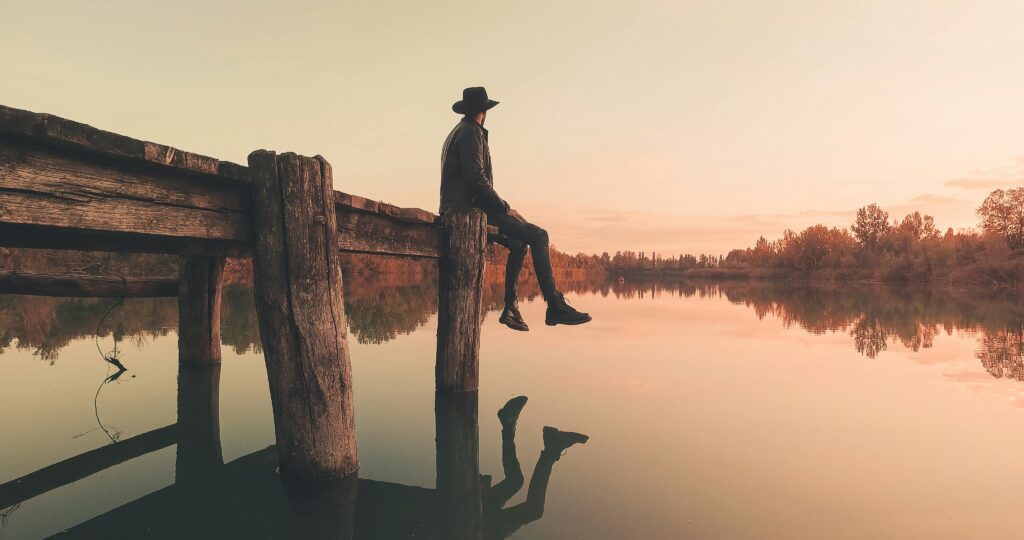“Your living is determined not so much by what life brings to you as by the attitude you bring to life;
not so much by what happens to you as by the way your mind looks at what happens.”
— Khalil Gibran
Change is everywhere. Unprecedented, constant, relentless change.
Sometimes, it feels like we’re living in a time unlike any other. So volatile, so unpredictable, so fast-moving. And there’s a certain lure in the thought that it wasn’t always like this. The good old times. When things were more stable, more predictable, more certain.
But that’s actually an illusion.
The reason the past feels stable is because we already know what happened. We look back and think, “Ah yes, that all made sense.” But when we were living through those times, they were just as uncertain as now. The difference is that today’s uncertainty feels raw and unfiltered and we don’t yet know how this chapter will end.
Maybe, back then, we were more carefree. We weren’t constantly reminded of the fragility of our planet or the polarization of our societies. We didn’t have to hold so much awareness. But that doesn’t mean life was more stable. It just means we were different.
So how do we live with change? When it’s so relentless, and the outcomes so uncertain, sometimes even disastrous?
It brings us back to who we are.
Because when everything outside of us is in motion, what anchors us is our inner world: our values, our essence, the quiet knowing of what truly matters.

For many of us, life began by being shaped by the world around us.
As children, we adapted. To our families, to their expectations, to their wounds. Some of us grew up in environments marked by trauma or fear. When I was two and a half, I was in the hospital in South Africa. It was the 70s. Back then it wasn’t understood that you don’t leave very young children without their parents. I was left alone.
That experience imprinted abandonment in my system. A terror that people I love might get angry and leave. It left a quiet question humming underneath everything: Am I good enough?
Over my life I’ve turned that wound into a gift. I’m meticulous. I check my work. If I find a substantial mistake, I correct it. I apologize when I miss something. And yes, sometimes I go overboard trying to keep everything in check (even down to the order the spices go into the pan when I’m cooking with my partner).
This history also clarified what I value: connection, integrity, inner peace. It taught me to listen inside, to steady myself from within, and to choose the attitude with which I meet what life brings.
So how do we begin?
By paying attention.
- To what gives us energy and what drains it.
- To what we love and what feels lifeless.
- To the moments where we come alive and to those where we quietly disappear.
You might discover that what you thought was your passion was only the surface.
Maybe, as a child, you loved taking things apart – radios, leaves, bits of wood — wanting to see how they worked. At first glance, that might seem like curiosity or problem-solving. But if you look deeper, what does it really stand for? The tree you took apart: it’s about growth, about reaching for the light. The radio: it’s about connection, transmitting messages, being in relationship with others. What if your fascination was never really about the things themselves, but about these deeper patterns of life that called to you even then?
When we start listening like that, beneath the surface, we begin to hear a deeper truth.
It’s not the analytical mind that tells us who we are. It’s the quiet, intuitive knowing: the inner voice that so often gets drowned out by fear, by noise, by what others might think.
Learning to listen to that voice and to trust it gives an unshakable kind of confidence. A sense that, no matter what happens, you have access to an inner council that will guide you. You don’t need a script, or a technique, or a trick you learned from someone else. You have an inner compass that is alive and adaptable, grounded in your own truth.

And this, perhaps, is the most important skill of our time.
Because change isn’t slowing down. The world keeps spinning faster: with wars, divisions, shifting values, and systems we once trusted turning against themselves. Democracy, human rights, the environment; all these things we took for granted are in flux.
So we return, again and again, to the only place that doesn’t change with the tides:
that quiet, grounded space within.
Your inner council.
The place where attitude shapes experience.
Because in the end, as Viktor Frankl reminded us,
“Even when everything is taken from us, one freedom remains — the freedom to choose how we respond.”

